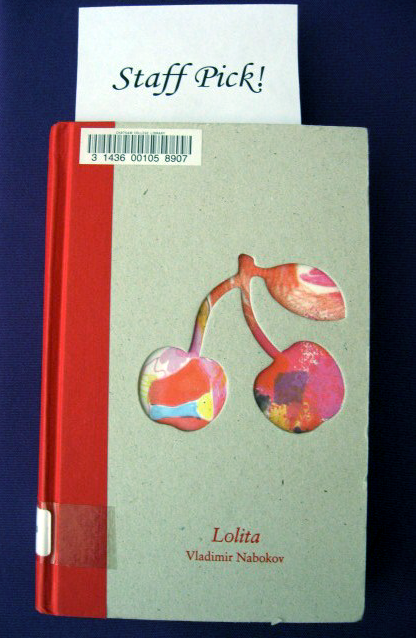Book Review: Lolita
 Jocelyn Codner
Jocelyn Codner
 January 2012
January 2012
I chose to read Lolita in honor of Banned Books Week. I was as familiar with the storyline as anyone: an older man and young girl have a racy relationship. That, however, is really just a popular culture misunderstanding. Rather, what Lolita gives us is a portrait of a man: miserable, paranoid, desperate, and conniving. Nabokov offers a very pointed view into a dark place in a person’s mind and explores how one can be manipulative and manipulated, guilty, controlled, tyrannical, and weak.
I found myself wincing at times in the story. It is difficult to read a first-person narrative of an individual one finds so repellent and unsympathetic. Even as Humbert explains his behavior and attempts to understand his own psychology, it is hard to justify decisions and actions, but this is not Nabokov’s aim. The book opens with Humbert in prison, writing from memory his early life and the years he spent with his young victim. This I think offers the reader a sense that justice has been served on some level, a comfort in knowing that he does not ultimately “get away” with anything.
Nabokov’s prose is what makes this book so mesmerizing. Indeed, Lolita has one of the most famous opening lines in literature. The author’s neologisms, portmanteaus, and elegant turn of phrase carry the book’s difficult subject matter in a way that might be described as belle laide, beautiful-ugly. Perhaps like Caravaggio’s Judith Beheading Holofernes. We are shown a horrific scene, but its execution is gorgeous. For a list of other works by Vladimir Nabokov, click here.
Reviewed by Donna Guerin, Reference Associate



Commenting on blog posts requires an account.
Login is required to interact with this comment. Please and try again.
If you do not have an account, Register Now.